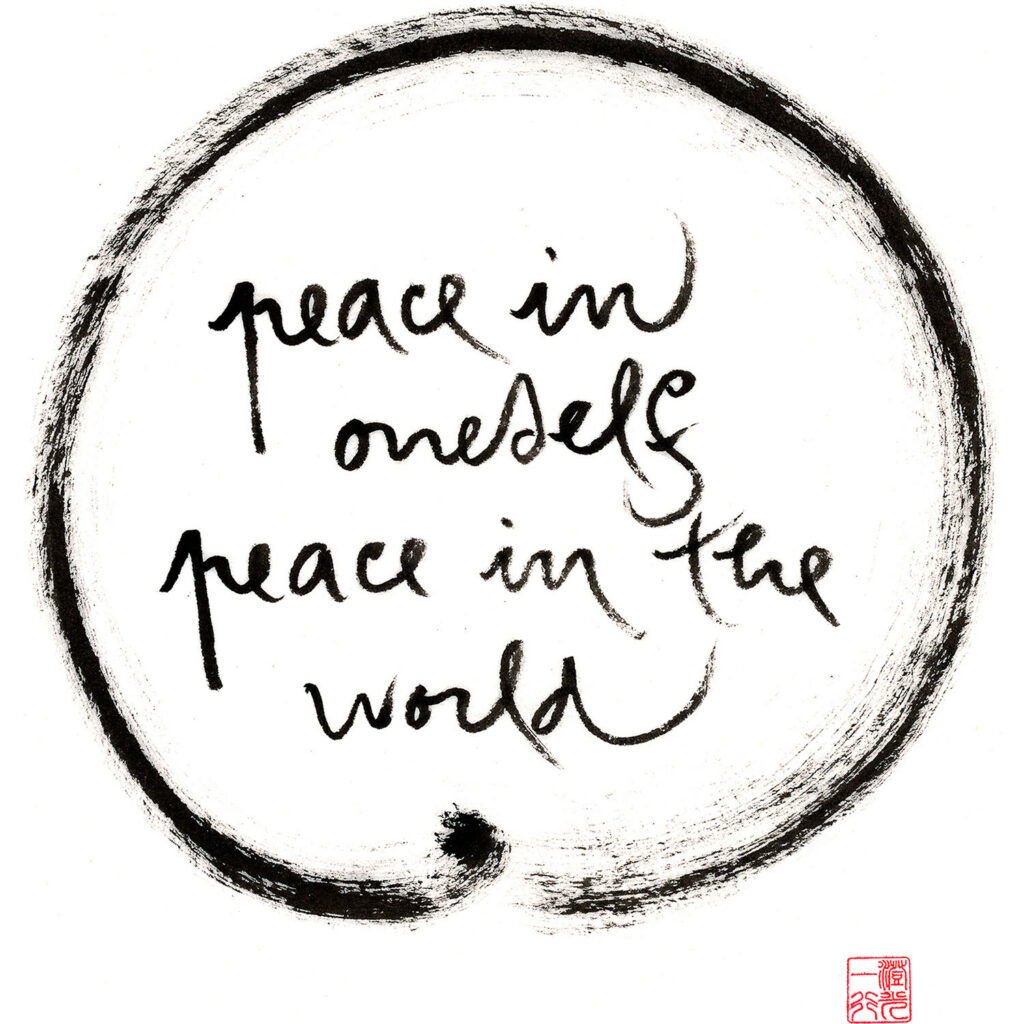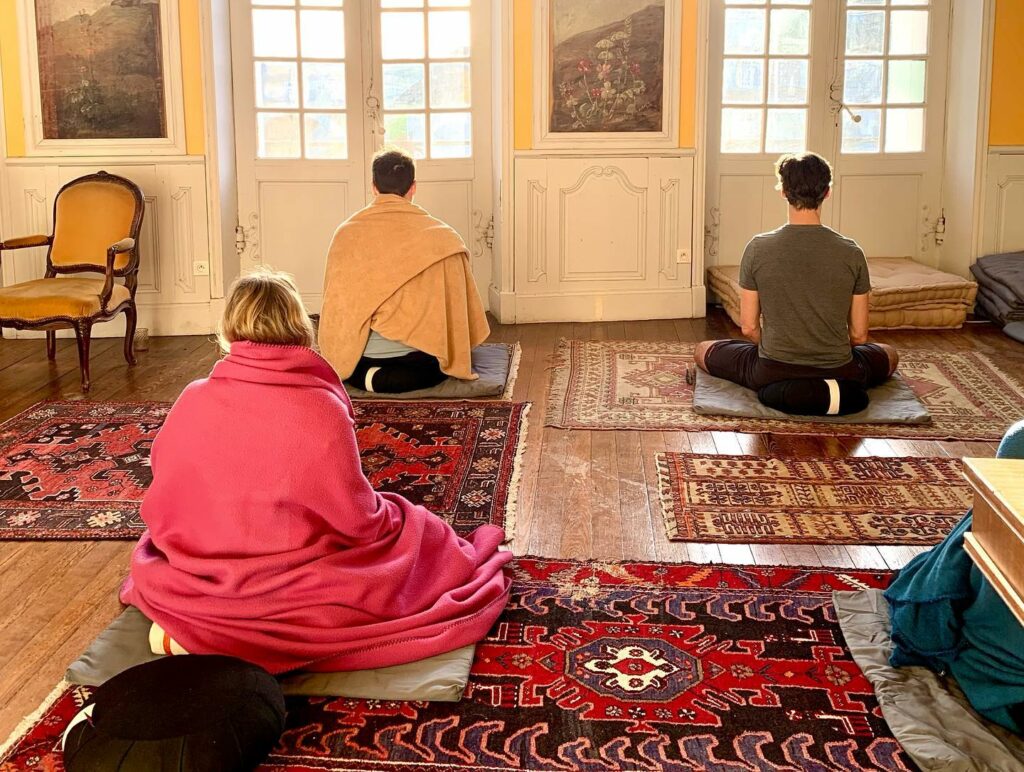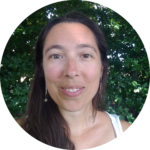Like many of us, I want to contribute to world peace. It is my intention to practice non-violence in my thoughts, words, and actions. To embody peace, tolerance, and compassion wherever I go. However, this is much easier said than done. No matter how strong my intention and dedication to be peaceful, I have to recognise that sometimes my thoughts can be very violent and judgmental.
The medicine for me has been not to judge myself for it, but to actually look deeply into my own judgments and stories. To become curious when my mind goes into blaming or complaining mode. And to take responsibility for my own needs that lie underneath the judgments.

(c) Plum Village
The trigger
For example, there was a young woman in our residency whom I perceived as very strong, sensual, and self-confident. I judged her as being too loud, taking up too much space, and too full of herself. This caused me to feel disconnected and distant towards her. Generally, I tried to avoid spending much time with her, in order not to feel tension or unease.
During the course of the month, as I was getting to know myself better and all my parts, something started to shift. I became more curious about the judgments and tension that I experienced. Slowly, I became more aware that a part of me felt intimidated or insecure. As if the other woman’s power made me shrink. As if her self-confidence made me feel inferior. As if I couldn’t be myself when she allowed her voice to be heard. Basically, I came to realise that it was less about her than about me. That she didn’t do anything ‘wrong’, but that there were parts of me crying out for my attention and understanding.
Courageous conversations
As a result, I began to feel less tense around the other young woman. In the last week of my stay, I even asked her to spend some time together. We had a courageous conversation about how we had perceived each other during the residency. I found it very connecting and healing to learn about each other’s insecurities and shadow sides.
During our conversation, I had the insight that my unease came from a conviction that women are not supposed to be strong or confident. That this somehow is dangerous and not welcome. That core belief causes me to feel uncomfortable and even scared when a woman dares to speak up in a group. Then a part of me immediately feels unsafe and goes into judging mode. I could begin to mourn that this conviction is so strong in me, and that it often prevents me to connect to other women.
To me it is very clear that what happened between us on a micro level also happens between women on a larger scale. The mutual tension that was present is a reflection of a collective painful dynamic that keeps women small and silent. A certain (unconscious) belief that women are supposed to be quiet, invisible, and accommodating around others. That they cannot be loud, strong, or sexy. Therefore, it seems crucial to me that we are willing to have such radically honest conversations with each other, in order for unhealthy dynamics to surface and begin to heal. And perhaps first and foremost: to make the U-turn in order to look deeply at what is actually going on inside of us.
When I judge another woman as too loud or too much,
can I acknowledge there’s a part in me that needs healing?
When a woman’s self-confidence scares me,
can I recognise my own fears around showing up as a powerful woman?
Can I allow the pain of my own supressed power to surface,
and learn to take care of the underlying shame and grief?
The pain underneath blame
By learning to recognise my own hatred and fear, and by looking deeply into the ways I act from judgment and blame, slowly I can begin to understand myself more fully. Seeing clearly my own pain underneath the judgments, helps me to feel more compassion for myself and others. If I can make a U-turn away from other people’s behaviour into my own inner world, I start to take more responsibility for my reactions instead of blaming or judging another person.
What happens on a micro-level between people, is also what happens on a collective level in society. If we can recognise our own core beliefs and judgments and no longer act from them, we can start to decondition a dynamic of many decades. If we can look into our own minds and hearts with curiosity, clarity and honesty, then a long journey of healing and transformation can begin. If we can be mirrors for one another and dare to have courageous conversations with each other, there is more hope for peace and reconciliation in the future.
If we want peace,
we have to be peace.
Peace is a practice,
not a hope.
~ Thich Nhat Hanh



